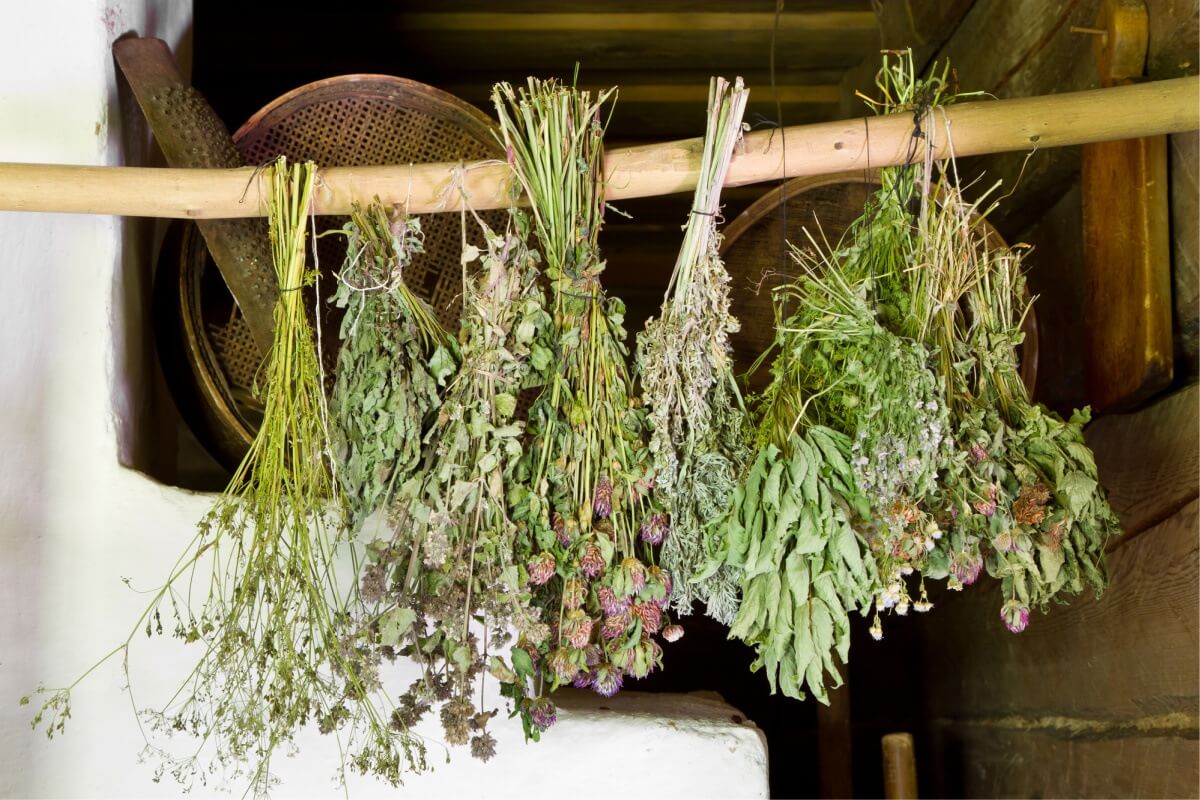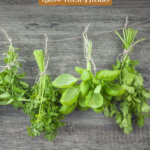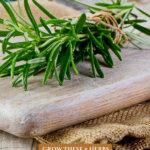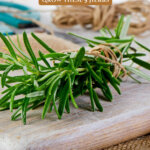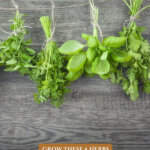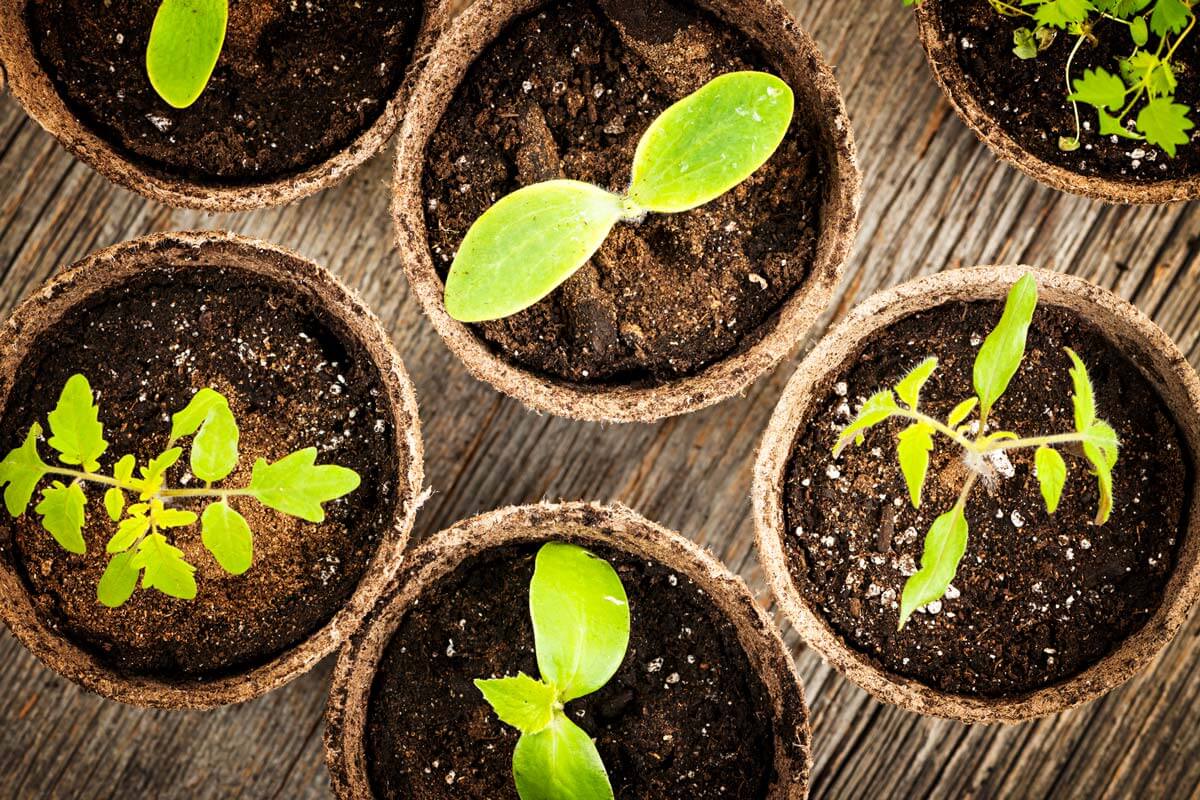When people want to start using herbs medicinally, it's very common that they don't know where to start. One of the easiest places to start is inside your kitchen herb and spice cupboard. These are my top six medicinal kitchen herbs and their common uses.
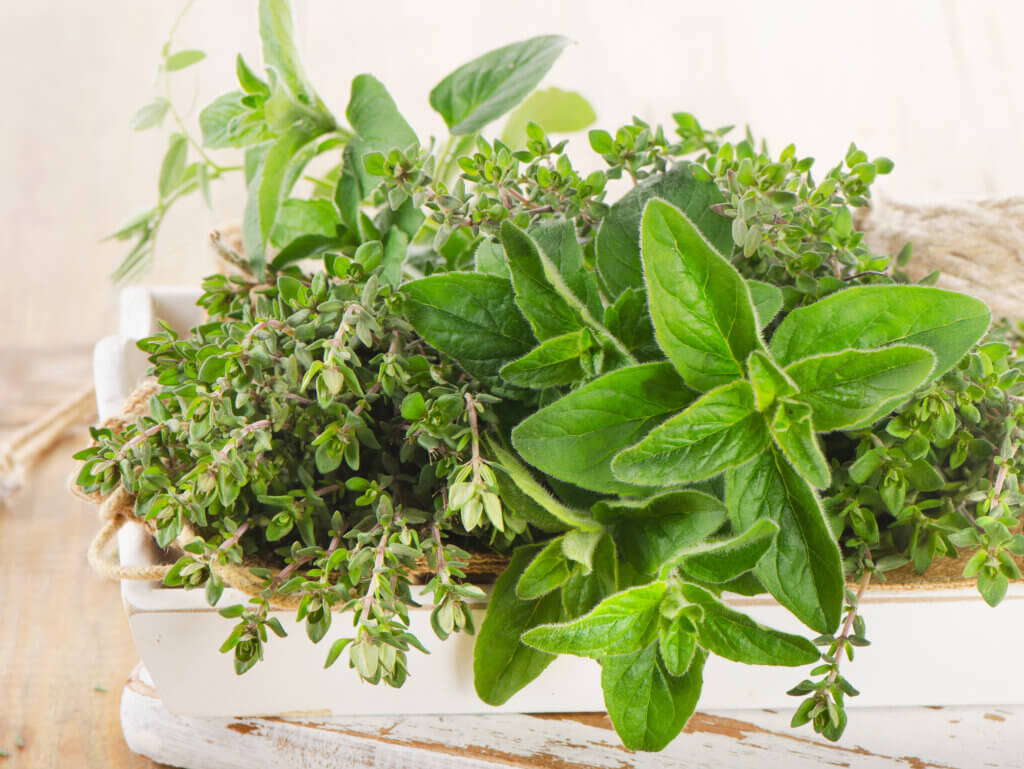
Growing herbs, specifically medicinal kitchen herbs, is something everyone should and can do. In this post, I'll be sharing my favorite medicinal herbs that can usually be found in the kitchen, plus a couple of wild foraged herbs.
This post was originally written back when I recorded the Pioneering Today Podcast on growing herbs for the kitchen (episode #105) but has been updated to include more detail on how to use these common kitchen herbs medicinally.
Why I Love Medicinal Herbs
One of my favorite ways to grow our own food is with the use of perennials. In my previous podcast, episode #104 I shared a beginner's guide to permaculture gardening, plus nine easy tips for you to implement today in your garden.
What I love about a kitchen herb garden is most of the culinary herbs we're discussing in this post also double as medicinal herbs because they have medicinal purposes.
The pioneers and homes of old grew their food, with creating a kitchen herb garden being at the top of the list. People of old would step right outside their door, instead of going to a grocery store, to flavor their foods and health use. Every home can and should be growing herbs.
It's important to note that I am not a certified medical practitioner. This post is not intended to diagnose or treat but is for informational purposes only. Please contact your healthcare professional before introducing new herbal and natural remedies into your wellness routine.
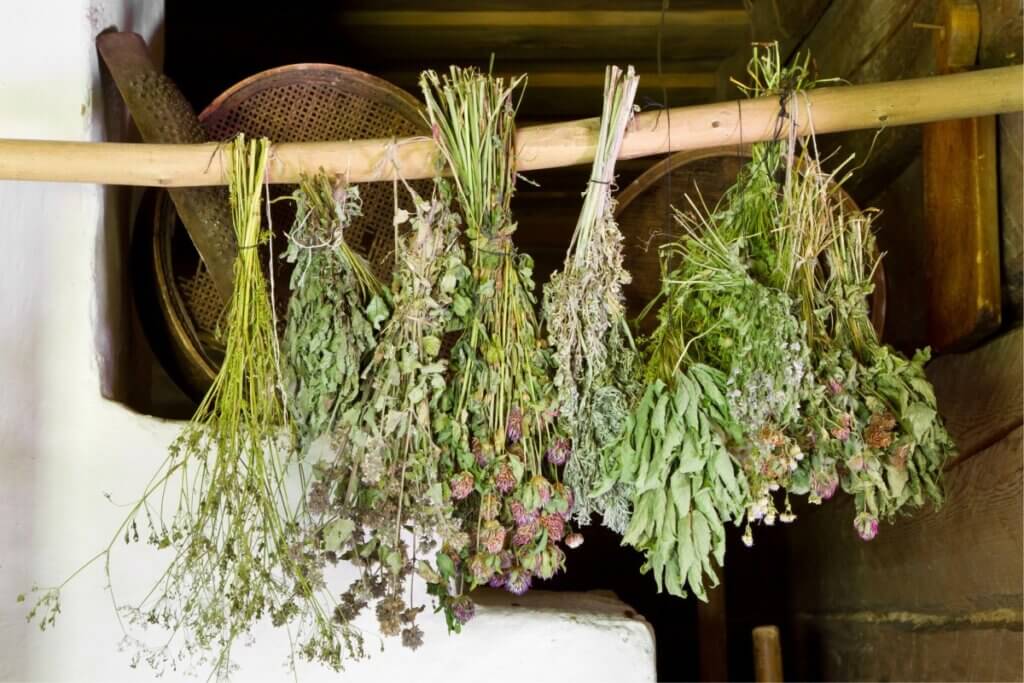
Four Energetics of Herbs
Herbs have four energetic effects, so it's important to know which effect the herb you're wanting to use has. For example, garlic is a “warming” herb, this is the energetic effect it has.
Warming
A warming herb is great to use anytime you have a cold because typically you're feeling cold when you have a cold. A warming herb gives the desired effect of warming from the correct herb of choice.
Ironically, peppermint starts off as a cooling herb, but then warms up, so it's actually listed as a warming herb.
Cooling
There are very few truly cooling herbs and none that you would likely find in your culinary herb cupboard. Many people confuse herbs that seem cool to start, such as peppermint, as a cooling herb. But the actual energetic effects of these herbs are usually warming.
Cooling herbs are used to either remove or reduce excess heat as with a fever, hot flashes, even insomnia!
Wet
When choosing between wet or dry herbs, you want to think about the symptom you're experiencing and choose the opposite herb. For instance, if you have a very dry cough, then using a wet herb can help soothe your throat.
Dry
If you have very dry skin, if you don't sweat much, and are overall a “dry” person, you'll want to look for herbs that are on the wet or moistening side. For example, marshmallow root is very mucilaginous and demulsive, so it's a great herb to use. (Source)
Sage tends to be a drying herb, so if you're experiencing a wet cough, or you tend to be oily and sweaty, you could sip on some sage tea to help counter-balance this effect. (Source) (Note: sage is considered safe in culinary amounts when pregnant but when used medicinally isn't safe during pregnancy)
Likewise, if you have a wet cough or a lot of phlegm you're going to want to use an herb with a drying effect.
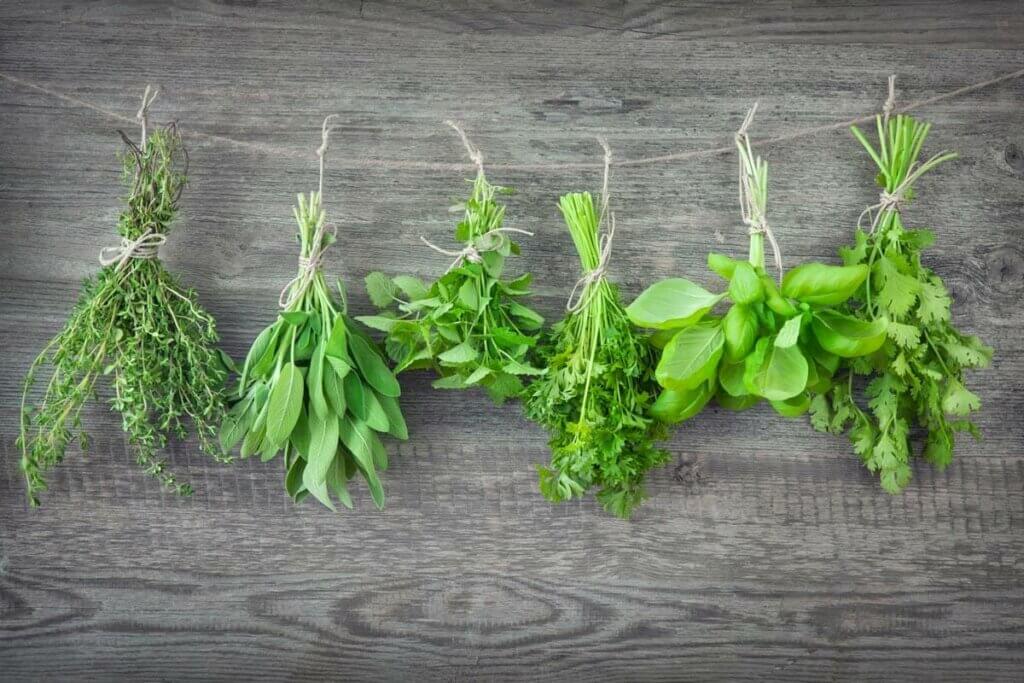
Best Medicinal Kitchen Herbs
There are numerous kitchen herbs that you can grow in the garden. It's important to learn how to prune herbs for maximum growth and how to harvest herbs.
Certain herbs don't care for cold weather, so I oftentimes grow my herbs in pots where I can move them around, or place them up next to a southern-facing wall of my house where the winter sun will keep them warm enough to survive.
Many of these herbs can also be grown year-round on a sunny windowsill indoors. Get creative and try to get some fresh herbs growing for not only their culinary uses but also their medicinal benefits.
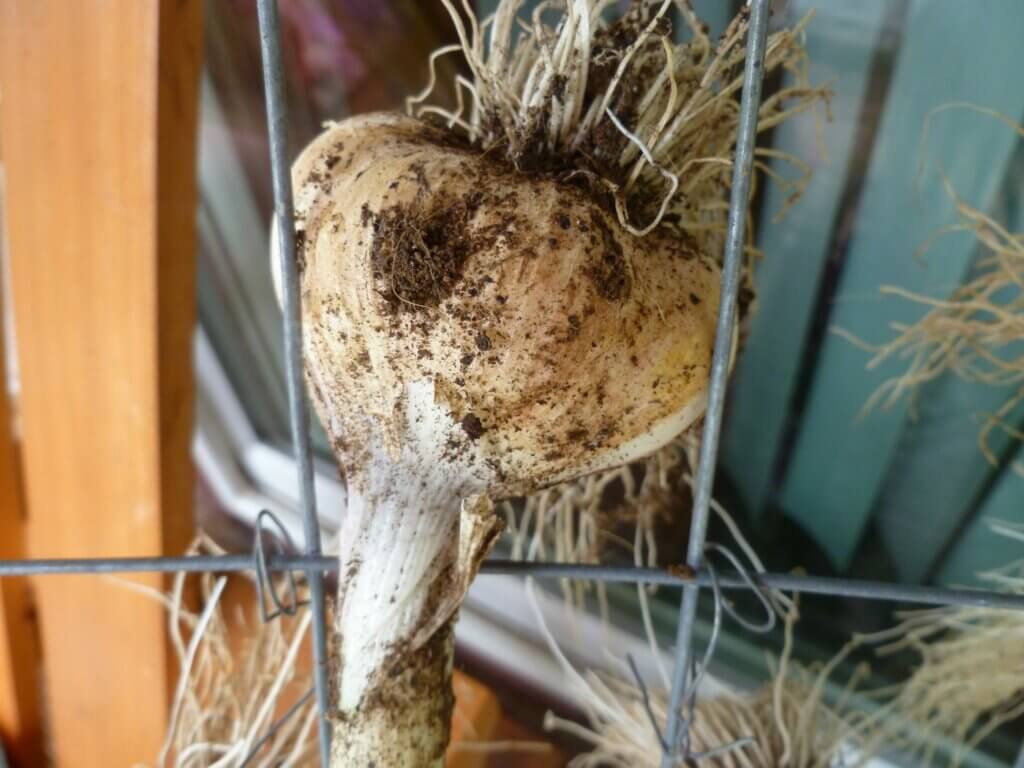
Garlic
I grow all our own garlic at home in my garden, and in the video above you can see how I'm curing the garlic before bringing it inside. You can also check out these posts on the blog for how to plant garlic, how to harvest garlic, and how to braid garlic for storage.
Garlic is a fantastic warming herb. It's great to use when you have a cold or the flu because garlic is anti-inflammatory, antimicrobial, and it can be used as an expectorant.
Garlic is also an immune stimulant which means it helps our bodies fight off naturally any bugs we're dealing with. (Source)
Garlic can be a great herb to use whenever we're dealing with respiratory issues, which usually happens when you have a common cold. (Source) Using garlic raw is a great way to extract these properties. In fact, my homemade fire cider is my favorite way to use this herb medicinally.
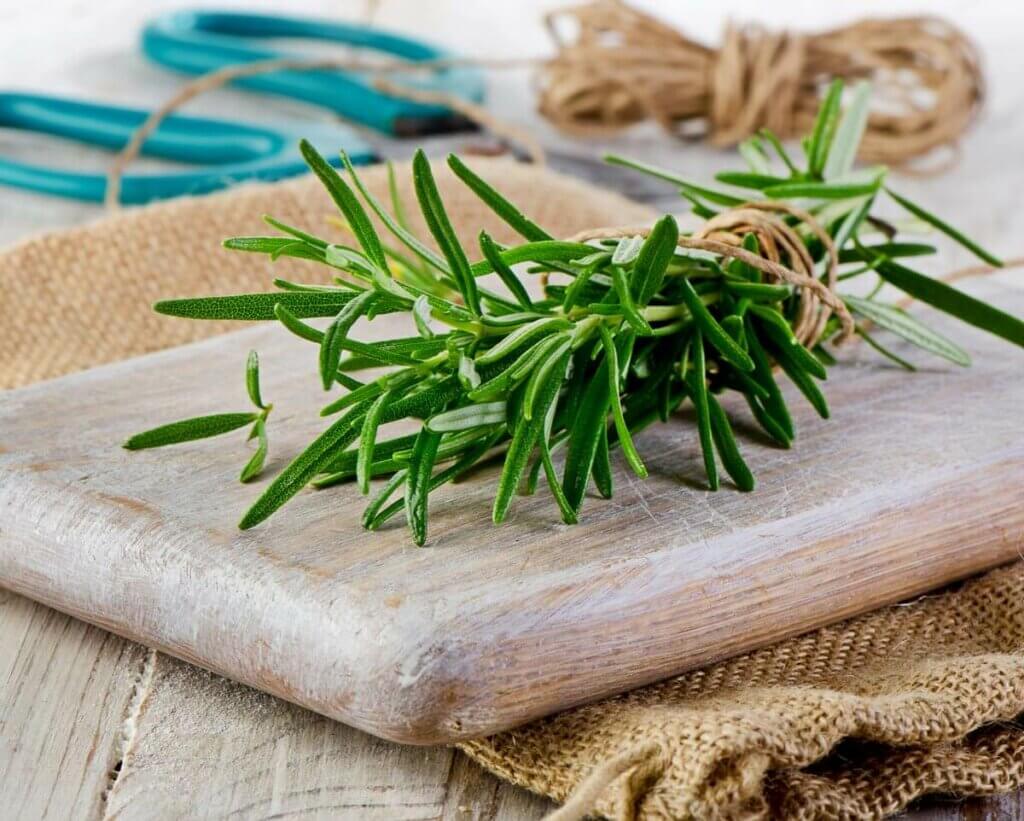
Rosemary
Rosemary is both warming and drying and can be a stimulant. It's anti-inflammatory, antimicrobial, and is fantastic for opening up any nasal congestion. (Source) Rosemary also has antioxidant properties, is a circulatory stimulant and a diaphoretic. (Source)
Rosemary is an excellent herb for both culinary and medicinal uses. However, if you live in a northern climate, such as here in the pacific northwest, it can be difficult to get your rosemary to winter over without dying.
I struggled for years to keep rosemary year after year until I moved my rosemary up against my house where it has both southern exposure and the heat radiating off my house and deck my rosemary bush is now ten years old.
If you've struggled to overwinter your rosemary, planting it in a pot and trying little microclimates around your home can be the difference needed for success.
One of my favorite ways to use rosemary is in herbal steam. It works especially well when you have a lot of nasal pressure.
Culinary-wise, rosemary is safe to use during pregnancy, however when you're using herbs medicinally because you're using them at higher dosages, it's not considered safe during pregnancy.
With any herbs, be sure to do your own research on what is considered safe to use. Inside my herbal course, I have a full list of all the contraindications and warnings listed out for you so there's no confusion on what can and can't be used safely.
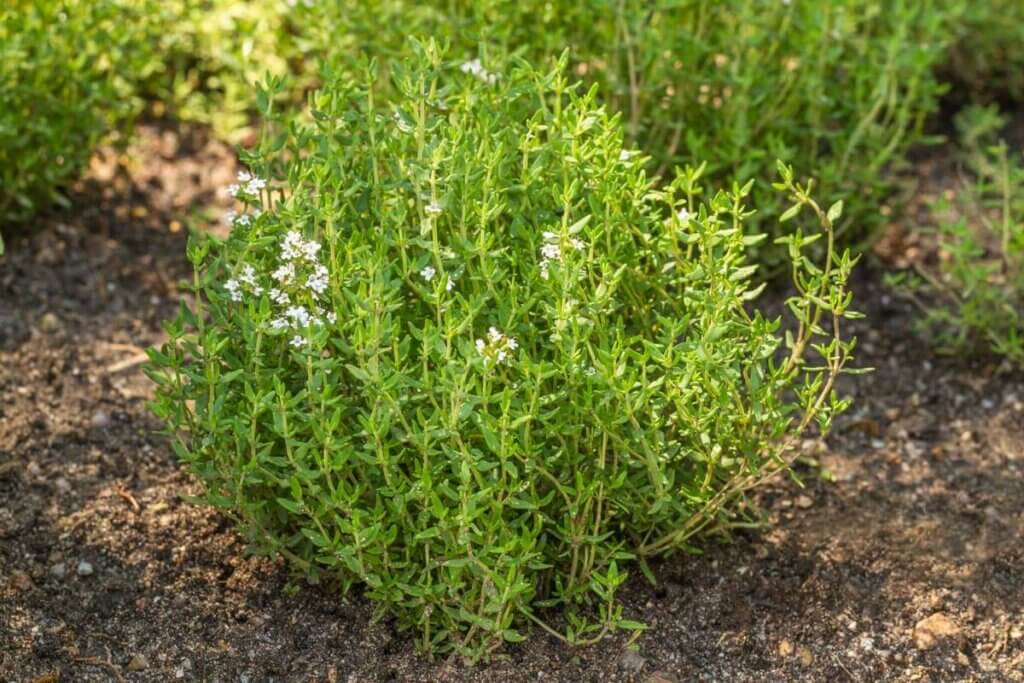
Thyme
Thyme is another one of the stronger scented and flavored herbs. Energetic wise, thyme is warming and drying. Hence, it's good to use when you have symptoms of a cold.
Thyme is antiinflammatory, antioxidant, antimicrobial, antiparasitic, antiseptic and also an expectorant. (Source)
When you're thinking about a cough that accompanies a cold, it's important to know the type of cough you're experiencing in order to know how to care for it properly. There are both dry and wet coughs. Wet coughs (known as productive coughs) are phlegmy and produce mucous whereas dry coughs are unproductive, meaning there's no mucous or phlegm that needs to be expelled, but the cough can become very irritating just the same.
If you have a productive cough, you want to try and get that mucous and phlegm up and out of your system, if it's a dry cough, you're going to be looking for herbs that will bring soothing and relaxation.
This is why it's important to pair your herbs with the symptoms you're experiencing well.
Because thyme is drying, if you have a dry cough already, you won't want to use this herb, however, if you have a wet cough, thyme could be just what you need, especially because it is an expectorant which means it can help expel all that excess mucous.
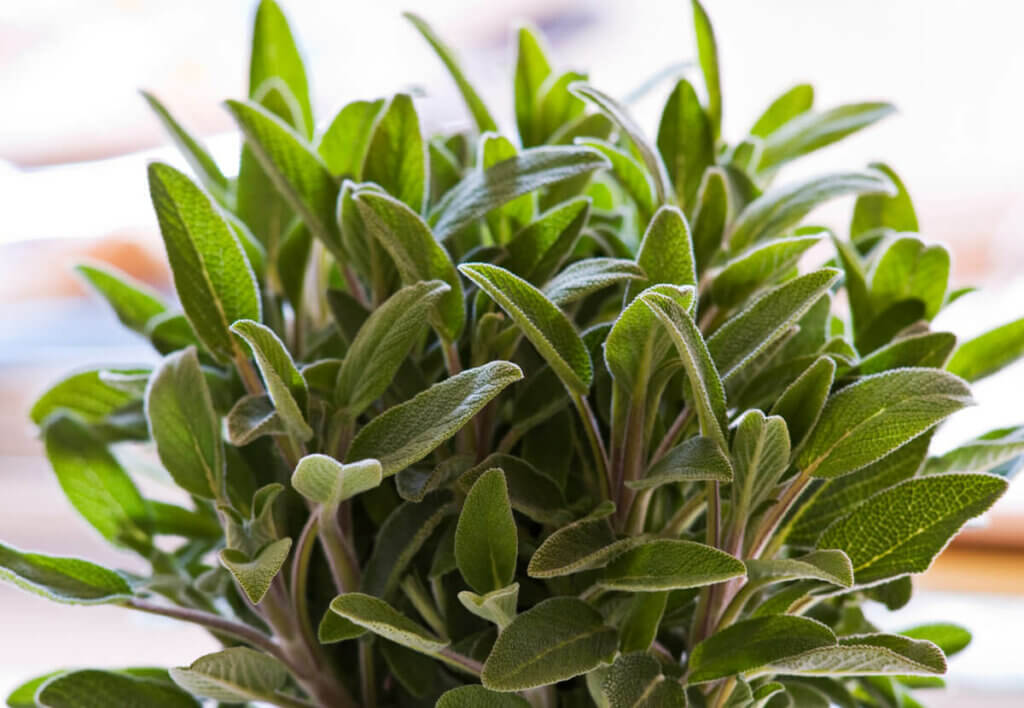
Sage
OK, I think I say this about every herb, but sage might just be my favorite! Sage is one of the first herbs I started using when I started using herbs medicinally.
My sage plant grows right outside my door and it's one of my prettiest herbs! It's also a very fragrant oil which means it's very volatile and has fantastic medicinal properties.
Sage is one of my favorite herbs anytime I'm dealing with a sore throat. I like to make a cup of sage tea to sip on and pairing it with raw honey which are both very soothing to the throat.
Sage is both warming and drying (energetics that tend to pair together frequently), it is anti-inflammatory, antimicrobial, antispasmodic, has antioxidant properties, is a diaphoretic as well as an expectorant. (Source)
When growing sage, even in northern climates, you can overwinter your sage with great success by growing them in pots utilizing some of your microclimates next to a southern-facing wall of your home.
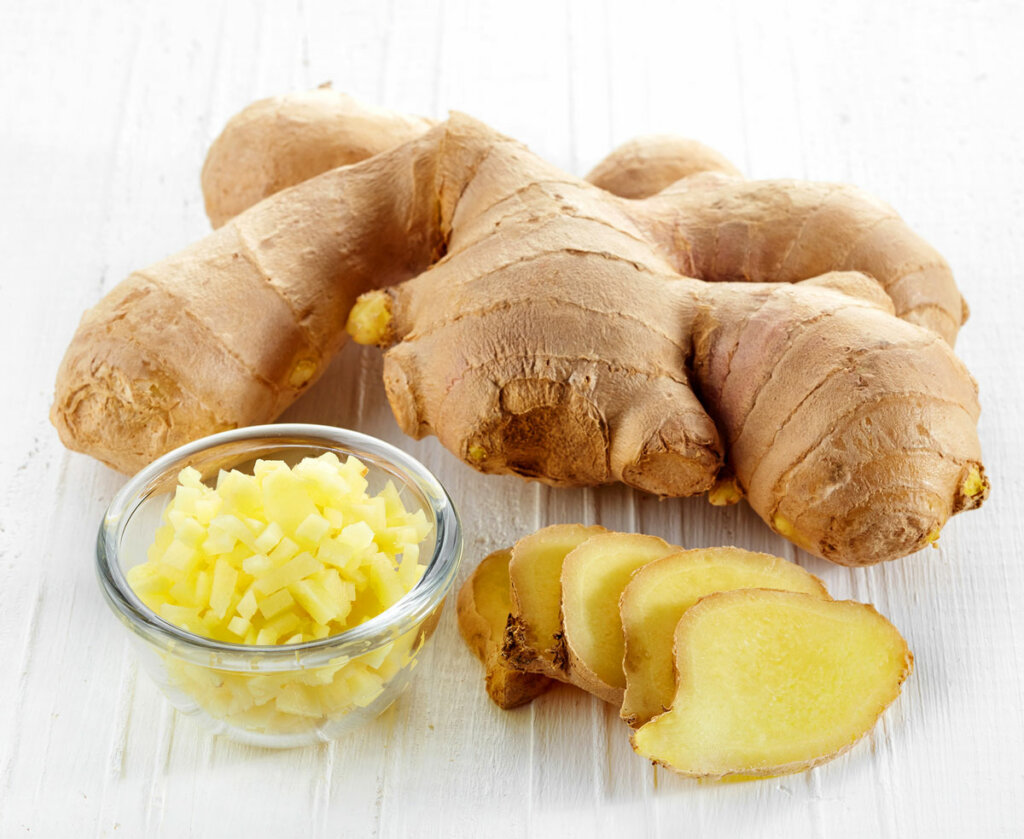
Ginger Root
I haven't yet figured out if I can successfully grow ginger root here in the pacific northwest, but it's on my bucket list of things to try! I'm still purchasing this from the grocery store.
Many people are familiar with buying ginger as a spice for cooking, or maybe you've heard that ginger can help with things like nausea and motion sickness. (Source)
Ginger is known as being used in Chai Teas (which I happen to LOVE and have a recipe for chai tea concentrate here), it's also a warming and drying spice.
While it's known to help aid in digestion and warming the body up when you have a cold. It's also anti-inflammatory, antimicrobial, antispasmodic, and expectorant properties. This is why it's so great to use when you're battling a cold or the flu. (Source) (Source)
As we're talking about treating the common cold, ginger can be a powerhouse. (Source)
It's important to know about the contraindications when using medicinal potencies of ginger. It's not good to use if you have a blood clotting disorder, or if you're on blood thinners, you will definitely want to talk to your doctor first.
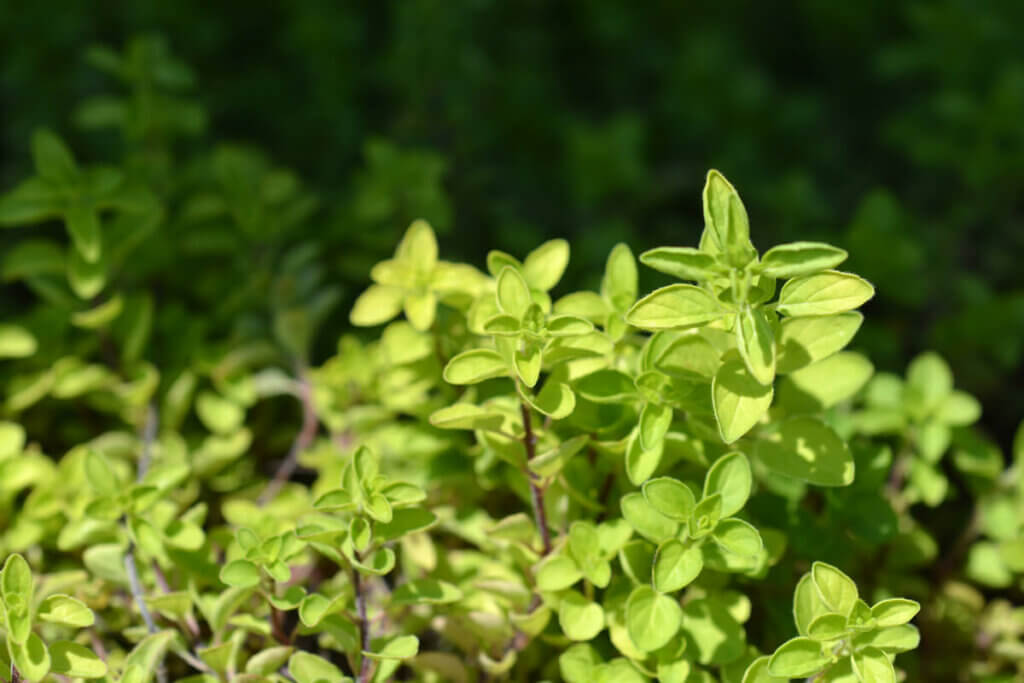
Oregano
I can pretty much harvest oregano all year round. Once you plant oregano, you'll never need to plant it again. In fact, if you don't want it to take over the area it's planted, you should probably plant it in a pot.
My oregano is also planted along the southern-facing side of our house. Even if it's been covered in snow, as soon as the snow melts off I can usually find little bits of green. It's one of the first herbs to turn really green that I can start harvesting in the early spring.
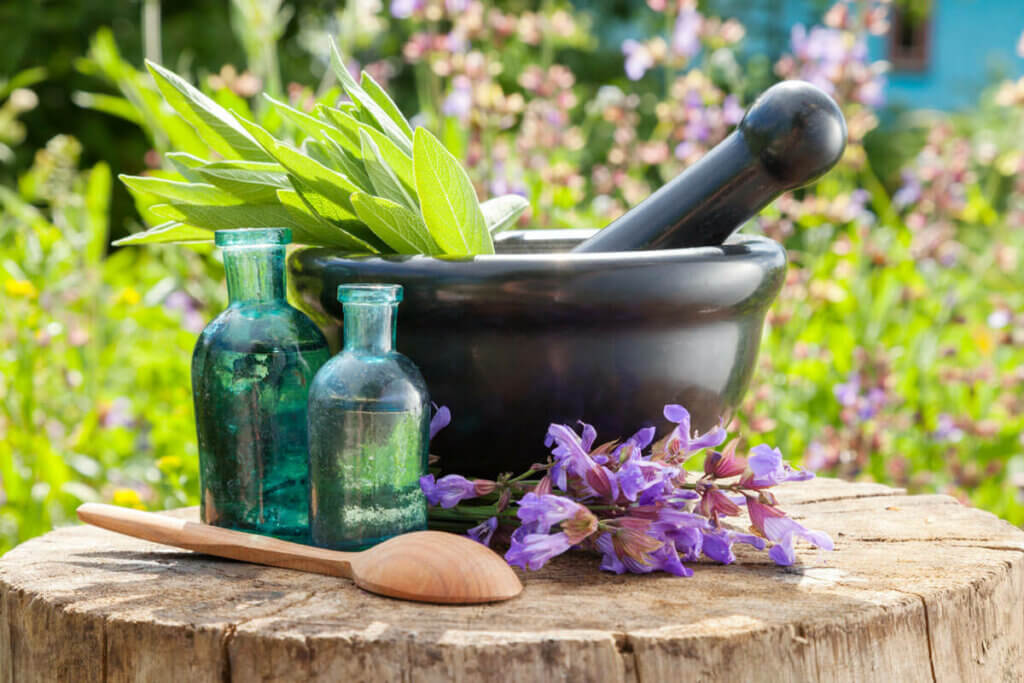
Herbal Course
If you'd like to learn more about using herbs medicinally, I have to tell you about my upcoming Herbal Course. It'll be released on October 20th, 2021 (you can grab the course here if you're reading this after that date).
In my herbal course, you'll learn how to confidently and effectively use herbs at home for you and your family, and you don't want to delay because the launch price will be the absolute best price it will ever be offered. You'll also get some extra goodies if you're on the waitlist! So jump on over and sign up for the waitlist now!
More Posts on Herbs You May Enjoy
- Herbal Medicinal Tea – How to Make Your Own
- How to Use Herbs and Natural Remedies at Home
- Herbal Home Remedies for Cold and Flu
- Grow an Herbal Tea Garden (+Herbal Tea Blend Recipes)
- 5 Tips for Harvesting Herbal Flowers
- Best Methods for Drying Herbs for Stronger Medicinal Properties
- How to Plan a Medicinal Herb Garden
- Medicinal Benefits of Rosehips
